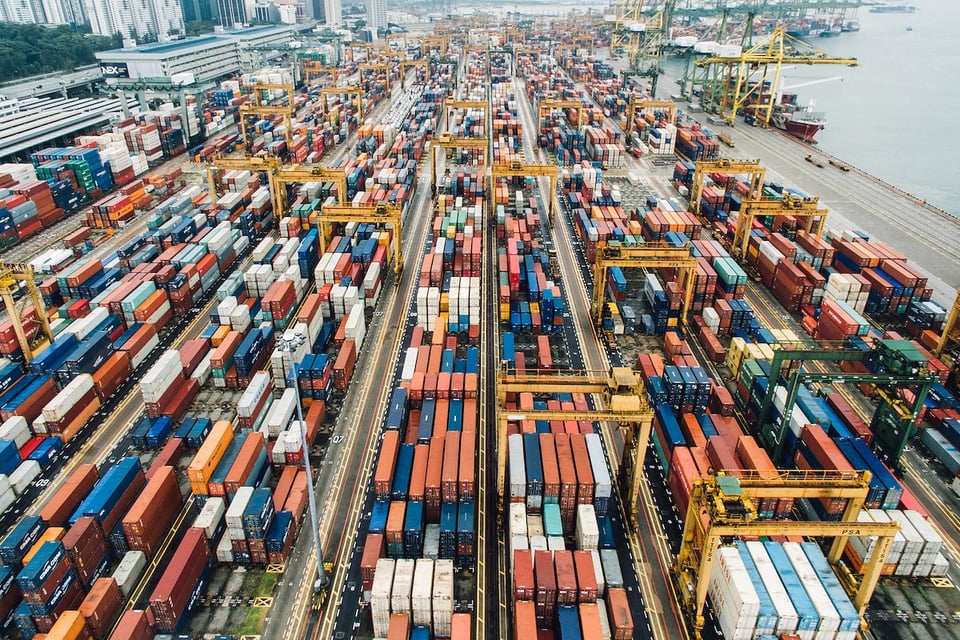Tariffs and the Unchecked President

Happy Tuesday,
Welcome to another irregular edition of the newsletter.
I’m writing today because I had a deadline this weekend and needed to finish a piece on teaching Globalization. That’s now in the editing phase, which means I have a bit of breathing room. So: newsletter time.
Last edition, I shared a Syllabus on the Manosphere and intended to follow up with more discussion and a few reader questions. That newsletter included a mention of Dale Beran’s phenomenal book It Came from Something Awful which tracks the origins of 4chan, 8kun, and the digital swamps that spawn so much racism, misogyny, and toxicity. I’ve re-read the book since then—and I have more to say about it and what I missed the first time around.
But that will have to wait. As it so often does, the universe intervened.
Yes, the country is deporting both legal and undocumented immigrants to gulags in El Salvador without due process—and threatening to do the same to US citizens.
Sure, international student visas are being canceled without notice, and senior citizens are losing access to Social Security offices as service at the Social Security Administration is slashed.
And yes (least importantly), your retirement is probably down 8% on the year.
But we have to start somewhere and this week I want to talk about tariffs. They’re as good a place as any to get our head around where things stand. The unilateral, whipsawing imposition of them is a perfect distillation of our moment.
After taking some time to reflect, I want to take a two-pronged approach with you today.
First, I’ll share something I published this week about tariffs—a Q&A I did with my students, responding to questions they submitted over email. These questions are interesting to me because they show their level of understanding of how things are supposed to work and the gap between that and our reality.
Second, I want to recap a podcast episode I recorded with Dr. Abdullah Al-Bahrani, an economist at Northern Kentucky University's Haile College of Business. I’ll link to the episode below, but it’s worth highlighting a few of the points he made.
We’ve heard shifting rationales for the tariffs. At times, we've been told they're meant to generate new revenue for the federal government, presumably to offset the cost of incoming tax cuts for wealthy individuals and corporations. At other points, we've been told they’re meant to incentivize manufacturers, both domestic and foreign, to relocate or return operations to the US to avoid tariff penalties.
But as Dr. A laid out in our conversation, those two goals simply can’t coexist.
Follow me here: if one accepts that the primary purpose of tariffs is to create government revenue, then they can only create revenue if imports into the US remain high. Put differently, the only way tariffs can generate the amount of money the administration claims they will is if the level of imports stays high, meaning most manufacturing stays overseas.
On the other hand, if the goal of tariffs is to incentivize manufacturing to relocate to the US, then inherently the tariffs will follow a declining revenue curve, as manufacturers relocate less tariffs money will come in.
It's impossible to do both. This is simple logic.
Another point Dr. A made that's worth discussing is the extent to which the US system has been fully captured by our oligarchical class. The wealthy have always driven public policy in America, but never has it been so brazen.
This week we saw the President joking with his friends, on camera at the White House, about how much money they made by essentially committing insider trading.
Moreover, because the president is operating unilaterally, things are moving at breakneck speed. When I recorded the conversation with Dr. A on Wednesday, the tariffs on China were set at 104%. By the time I woke up the next morning, they had been ratcheted up to 125%. And by the time I got home from work the next day, they were at 145%.
Then, just two days ago, we were told that the tariffs would not apply to Chinese-manufactured cell phones, laptops, and semiconductors. It doesn't take a rocket scientist to figure out this was very likely the result of successful lobbying from American oligarch and Apple CEO Tim Cook.
Think about the math: if a Chinese-manufactured iPhone faces a tariff of 145% while a Korean-manufactured Samsung Galaxy device has a tariff of only 10%, you'd have to be the most delusional Apple fanboy on earth to shell out the extra money. Cook clearly made this point to the President causing him to walk the tariff back—until he didn't.
On Sunday, as the machinations I described above became apparent in media and to the public, the president had another change of heart about the tariffs, saying that the relief Apple won is only "temporary."
Notably, one of the albatrosses that Republicans successfully hung around Barack Obama's neck, especially in his second term, was that his presidency serially caused “uncertainty.” The part that went unstated was the extent to which the GOP-controlled Senate was driving much of that uncertainty through their threats to shut down the government and hostage-taking on the debt ceiling.
But I digress.
We're living through a crash of international prestige, trust, and global soft power.
By the time you read this, I honestly don't know what the tariff levels are going to be on what. And it's very likely the White House doesn't know either—and that is the core of the problem.
We find ourselves in a moment in which a system famous for separation of powers and checks & balances finds itself with neither. That's a very dangerous place to be when you have arguably the most volatile person to ever hold the office of the President at the helm.
I think I'll leave it there for this week.